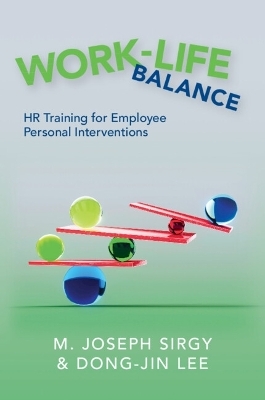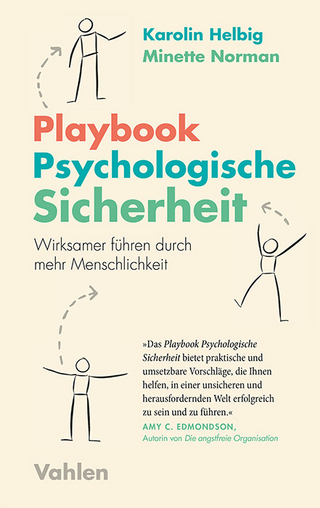
Work-Life Balance
Cambridge University Press (Verlag)
978-1-009-28182-9 (ISBN)
Based on a thorough review of the research on work-life balance, Sirgy and Lee identify a set of personal interventions that selected employees commonly use to increase their work-life balance and life satisfaction. Personal interventions of work-life balance involve five behavior-based strategies and four cognition-based strategies. The behavior-based strategies are engaging in multiple roles and domains, increasing role enrichment, engaging in behavior-based compensation, managing role conflict, and creating role balance. The cognition-based strategies are segmenting roles and domains, integrating roles and domains, engaging in value-based compensation, and applying whole-life perspective in decision-making. This volume provides HR managers and HR consultants with pedagogical material designed to help them develop in-house workshops, seminars, and curricula for their employees to improve their work-life balance by using the personal interventions described in the book.
M. Joseph (Joe) Sirgy is a management psychologist (Ph.D., U/Massachusetts, 1979). He has published extensively in the area of business administration, business ethics, and quality of life. He received many awards over the years for his research, teaching, and service to the management discipline. He has co-founded the International Society for Quality-of-Life Studies, the Macromarketing Society, and the Community Indicators Consortium. He served as editor in chief for Applied Research in Quality of Life and the Journal of Macromarketing. He also served as co-editor of several book series related to quality of life and human wellbeing and published numerous books on quality of life and human wellbeing. Dong-Jin Lee is Professor at the School of Business, Yonsei University, Seoul Korea. He received his Ph.D. from Virginia Tech (1996) and has published extensively in the area of quality of life studies. Before joining Yonsei University, he was on the faculty of University of Western Australia (1996–1999) and State University of New York at Binghamtom (2000–2002). He served as Vice President for Academic Affairs for the International Society for Quality of Life Studies (ISQOLS: 1997–1999) and Vice President for Publication (ISQOLS: 2007–2009). He also served as Program Area Chair (ISQOLS: 1997–1998), Section Editor of Applied Research in Quality of Life (ARQOL: 2009–2011), and Dean of Sangnam Management Institute at Yonsei University (2017–2018). He won the best paper award from ARQOL in 2021.
Part I. Making the Case for Work-Life Balance: 1. Introduction; 2. Why is work-life balance important?; 3. How does work-life balance contribute to life satisfaction?; Part II. Behavior-Based Personal Interventions of Work-Life Balance: 4. Engaging in multiple roles and domains; 5. Increasing role enrichment; 6. Engaging in behavior-based compensation; 7. Managing role conflict; 8. Creating role balance; Part III. Cognition-Based Personal Interventions of Work-Life Balance; 9. Segmenting roles and domains; 10. Integrating roles and domains; 11. Engaging in value-based compensation; 12. Applying whole-life perspective in decision-making; Part IV. Epilogue: 13. Conclusion.
| Erscheinungsdatum | 18.01.2023 |
|---|---|
| Zusatzinfo | Worked examples or Exercises |
| Verlagsort | Cambridge |
| Sprache | englisch |
| Maße | 152 x 228 mm |
| Gewicht | 280 g |
| Themenwelt | Geisteswissenschaften ► Psychologie ► Arbeits- und Organisationspsychologie |
| Wirtschaft ► Betriebswirtschaft / Management ► Personalwesen | |
| Wirtschaft ► Betriebswirtschaft / Management ► Planung / Organisation | |
| ISBN-10 | 1-009-28182-8 / 1009281828 |
| ISBN-13 | 978-1-009-28182-9 / 9781009281829 |
| Zustand | Neuware |
| Informationen gemäß Produktsicherheitsverordnung (GPSR) | |
| Haben Sie eine Frage zum Produkt? |
aus dem Bereich


